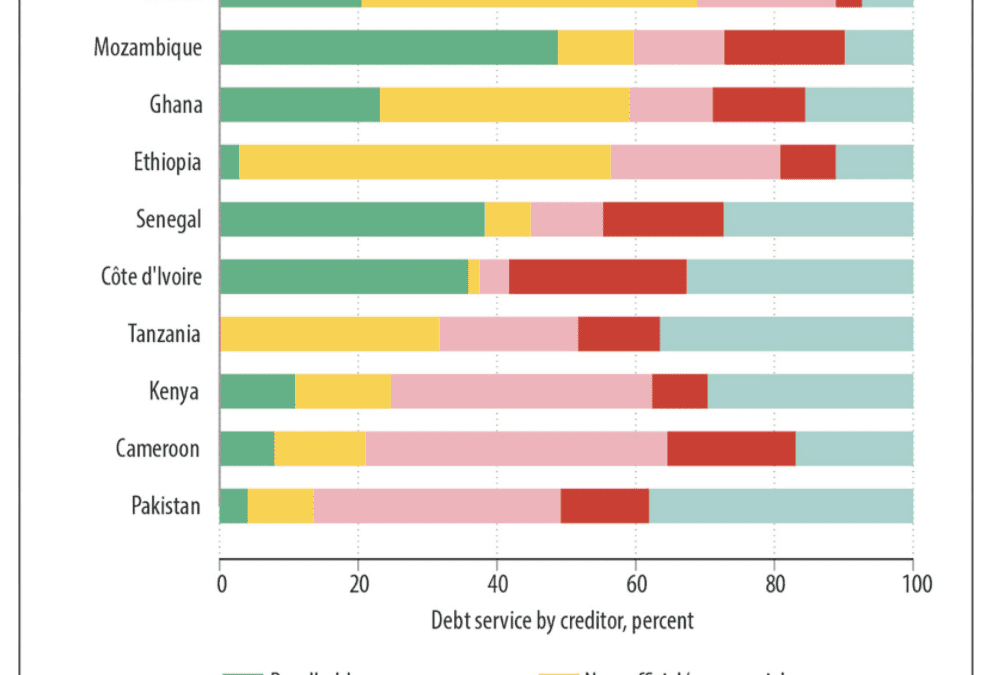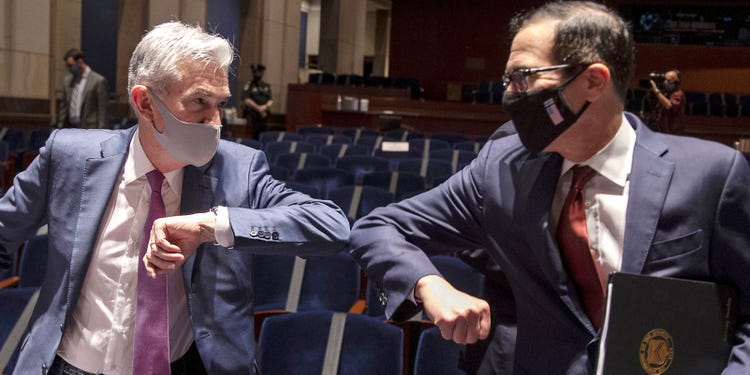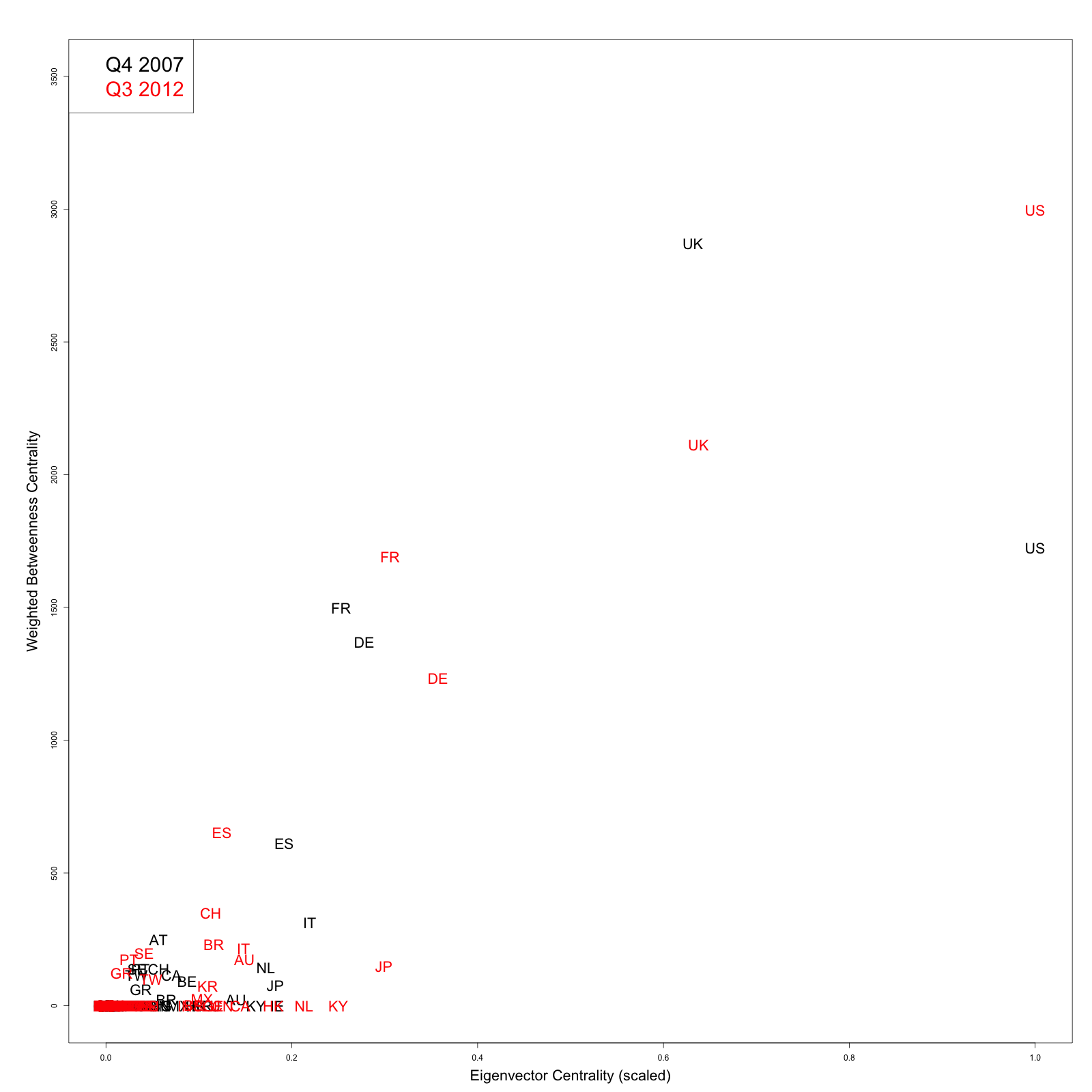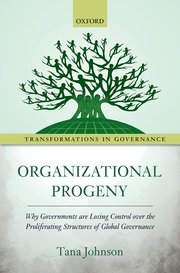This piece is the first of a three-part series grappling with the role of political economy in making a just, sustainable international order. hat’s America’s story for how economic policy relates to international security? I think for a long...


This piece is the first of a three-part series grappling with the role of political economy in making a just, sustainable international order. hat’s America’s story for how economic policy relates to international security? I think for a long...

Fast fashion is generating more than just cheap clothing: it’s also a crisis of disposability affecting livelihoods in the Global South.

As access to vaccines continues to hamper developing countries’ response to the COVID-19 pandemic, many of these countries also face significant public debt burdens. The Debt Service Suspension...

This is a guest post from Walter James, a PhD candidate in the Department of Political Science at Temple University with an interest in comparative political economy of financial regulation. The...

This is a post by William Kindred Winecoff, Assistant Professor of Political Science at Indiana University Bloomington, as part of the Duck of Minerva’s Symposium on Structural Power and the Study of Business. This post draws on ideas developed at greater length in Winecoff’s article found here. Links to other posts in the symposium can be found here. A curious thing has happened since the global financial crisis: all of the rising powers that were ostensibly going to challenge the postwar American hegemonic project have taken significant steps backwards, while the U.S. has recovered much...
This is a guest post by Henry Farrell, Associate Professor of Political Science and International Affairs at George Washington University, and Abraham Newman, Associate Professor in the Edmund A. Walsh School of Foreign Service and the Government Department at Georgetown University, as part of the Duck of Minerva’s Symposium on Structural Power and the Study of Business. This post draws on ideas developed at greater length in Farrell and Newman's article found here. Links to other posts in the symposium can be found here. Political scientists haven't paid nearly enough attention to...
This is a guest post by Tasha Fairfield, Assistant Professor in the Department of International Development at the London School of Economics and Political Science, as part of the Duck of Minerva’s Symposium on Structural Power and the Study of Business. This post draws on ideas developed at greater length in Fairfield’s article found here. Links to other posts in the symposium can be found here. Taxation is a policy area rife with examples from around the world of the substantial influence that business can wield. Consider Latin America, a region known for phenomenal inequality and light...
This is a guest post by Kevin Young, Assistant Professor of Political Science at the University of Massachusetts Amherst, as part of the Duck of Minerva's Symposium on Structural Power and the Study of Business. This post draws on ideas developed at greater length in Young's article found here. Links to other posts in the symposium can be found here. We live in a civilization populated by an organizational form that has replicated itself throughout the world with incredible speed, voracity and flexibility. It might be the organizational form of our age. This organizational form organizes the...
This is a guest post by Patrick Emmenegger, Professor of Comparative Political Economy and Public Policy at the University of St. Gallen, as part of the Duck of Minerva's Symposium on Structural Power and the Study of Business. This post draws on ideas developed at greater length in Emmenegger's article found here. Links to other posts in the symposium can be found here. The United States of America is the most powerful country in the world but when it comes to interactions with international banks, it looks surprisingly feeble – at least according to conventional wisdom. Two types of...
This is a guest post by Pepper D. Culpepper, Professor of Political Science at the European University Institute, as part of the Duck of Minerva's Symposium on Structural Power and the Study of Business. This post draws on ideas developed at greater length in Culpepper's article found here. Links to other posts in the symposium can be found here. Crises shake up the real world. Sometimes, they even shake up the world of political science. The recent global financial crisis and the ongoing bank and sovereign debt crisis associated with it in the Eurozone have led many scholars to reach back...

This week the Duck will host a symposium on a recent special issue of Business and Politics on Structural Power and the Study of Business, which was guest-edited by Pepper Culpepper and published in October. De Gruyter has generously agreed to temporarily ungate the issue to correspond with this symposium; the articles may be found here. Each day of the week will contain a post in the morning and the afternoon, written by the authors of the articles in the issue, with a concluding post discussing the project by Randall German. We hope you will join us in the comments as we go along. This...

This is a guest post from Tana Johnson, an Assistant Professor at Duke University's Sanford School of Public Policy. I had the pleasure of editing a reviews exchange on her important new book, Organizational Progeny. The exchange just came out in the latest issue of International Politics Reviews and features reviews from me (Josh), Tanisha Fazal, and Alexandru Grigorescu, as well as a response from Johnson herself. Ungated access here. I’ve recently returned from Geneva, home to scores of international intergovernmental organizations (IGOs). It’s an intriguing place: unlike New York,...